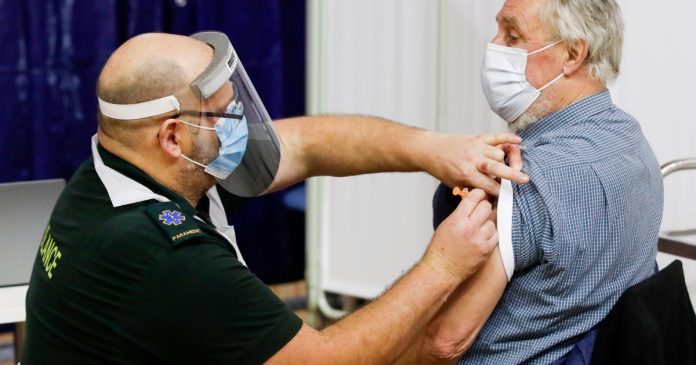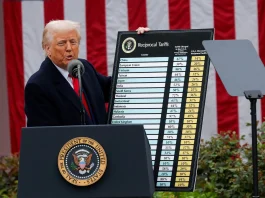[ad_1]
UK giving second dose of Pfizer-BioNTech vaccine up to 12 weeks after the first, but WHO recommends a shorter gap.
A major British doctors’ group says the United Kingdom should “urgently review” its decision to give people a second dose of the Pfizer-BioNTech coronavirus vaccine up to 12 weeks after the first, rather than the shorter gap recommended by the manufacturer and the World Health Organization.
The UK, which has Europe’s deadliest coronavirus outbreak, adopted the policy in order to give as many people as possible the first dose of vaccine quickly.
So far almost 5.5 million people have received a shot of either a vaccine made by United States drugmaker Pfizer and Germany’s BioNTech or one developed by UK-Swedish pharmaceutical giant AstraZeneca and Oxford University.
AstraZeneca has said it believes the first dose of its vaccine offers protection after 12 weeks, but Pfizer says it has not tested the efficacy of its jab after such a long gap.
The British Medical Association (BMA) on Saturday urged England’s Chief Medical Officer Chris Whitty to “urgently review the UK’s current position of second doses after 12 weeks”.
In a statement, the BMA said there was “growing concern from the medical profession regarding the delay of the second dose of the Pfizer-BioNTech vaccine as Britain’s strategy has become increasingly isolated from many other countries”.
“No other nation has adopted the UK’s approach,” Chaand Nagpaul, chairman of the BMA council, told the BBC.
He said the WHO had recommended that the second Pfizer vaccine shot could be given up to six weeks after the first but only “in exceptional circumstances”.
“I do understand the trade-off and the rationale, but if that was the right thing to do then we would see other nations following suit,” Nagpaul said.
Yvonne Doyle, medical director of Public Health England, defended the decision as “a reasonable scientific balance on the basis of both supply and also protecting the most people”.
The doctors’ concerns came a day after government medical advisers said there was evidence that a new variant of the virus first identified in southeast England carries a greater risk of death than the original strain.
Chief Scientific Adviser Patrick Vallance said on Friday “that there is evidence that there is an increased risk for those who have the new variant,” which is also more transmissible than the original virus.
He said the new strain might be about 30 percent more deadly, but stressed that “the evidence is not yet strong” and more research is needed.
Research by British scientists advising the government said although initial analyses suggested that the strain did not cause more severe disease, several more recent ones suggest it might.
However, the number of deaths is relatively small, and fatality rates are affected by many things, including the care that patients get and their age and health, beyond having COVID-19.
The UK has recorded 97,517 deaths among people who tested positive, the highest confirmed virus toll in Europe.
The country is in a lockdown to try to slow the latest surge of the virus, and the government says an end to the restrictions will not come soon.
Pubs, restaurants, gyms, entertainment venues and many shops are closed, and people are required to stay largely at home.
[ad_2]
Source link




